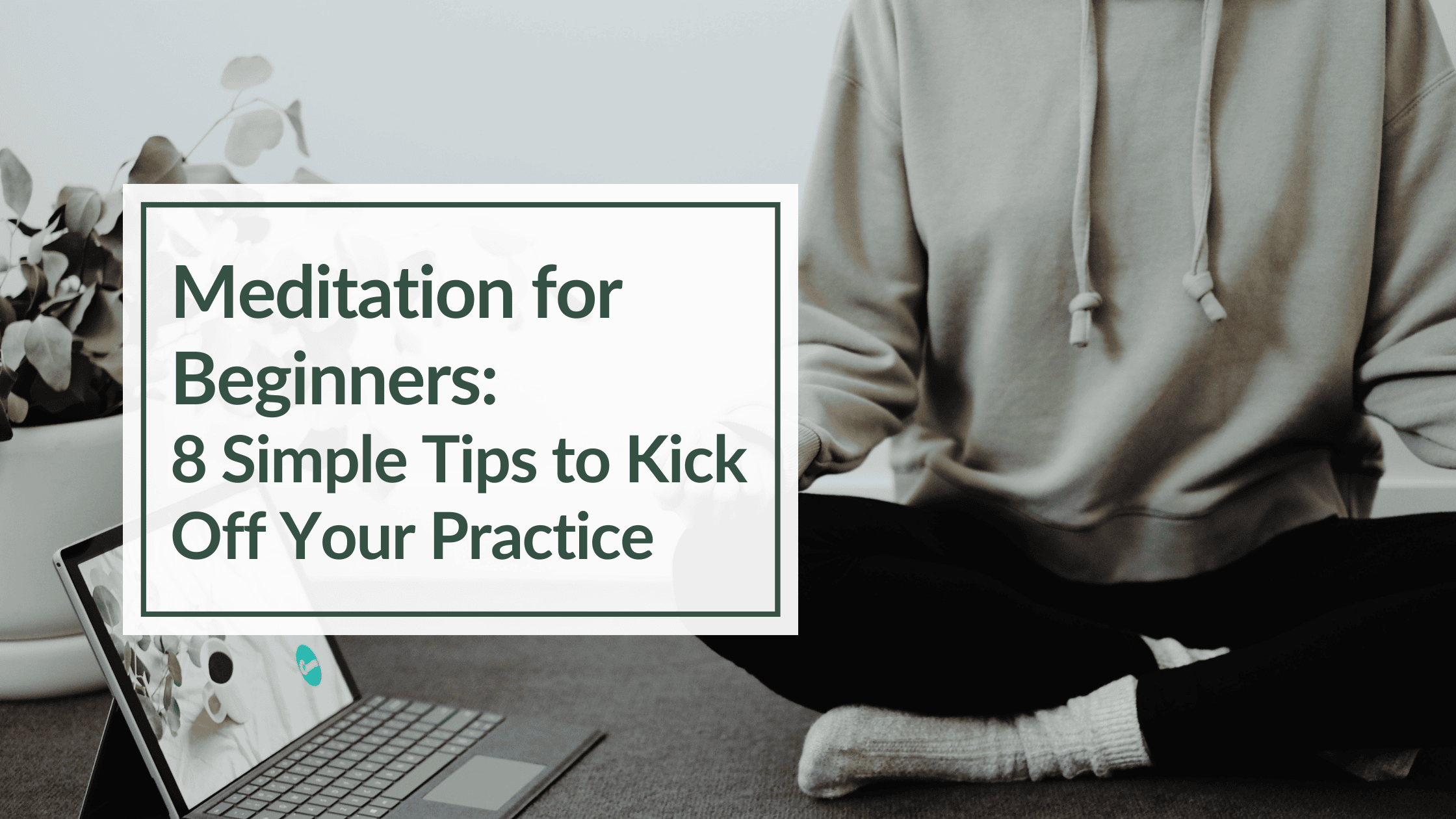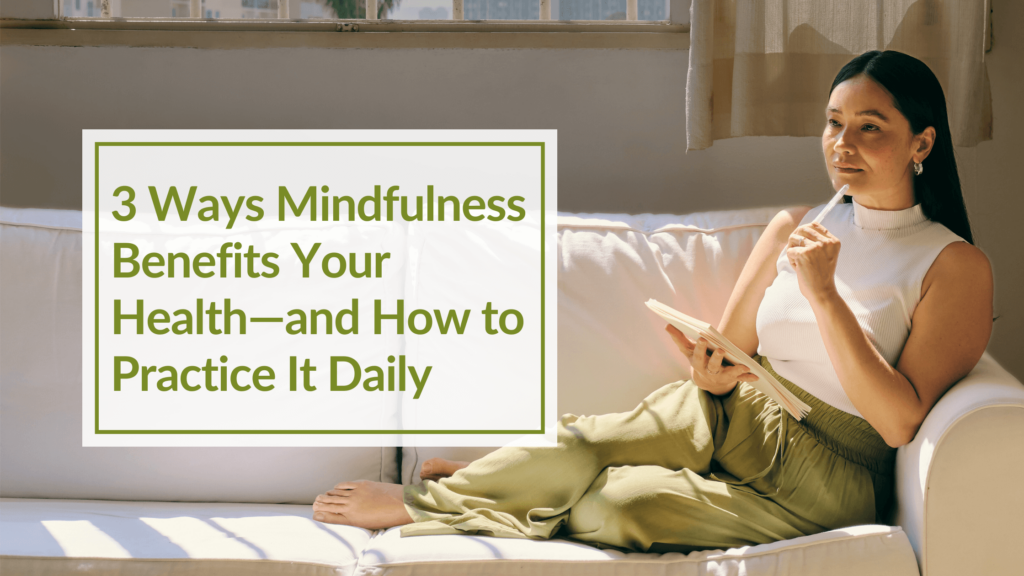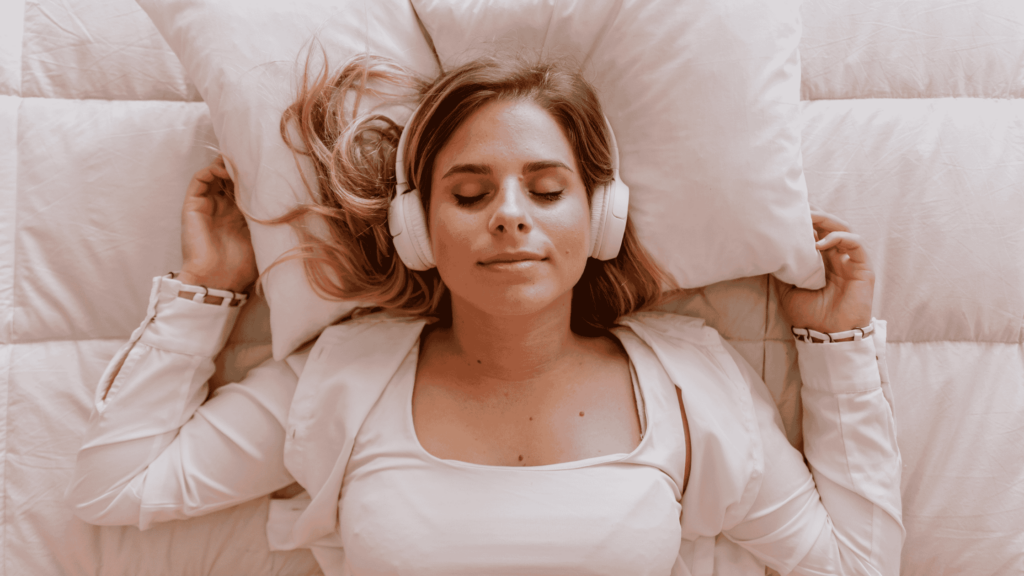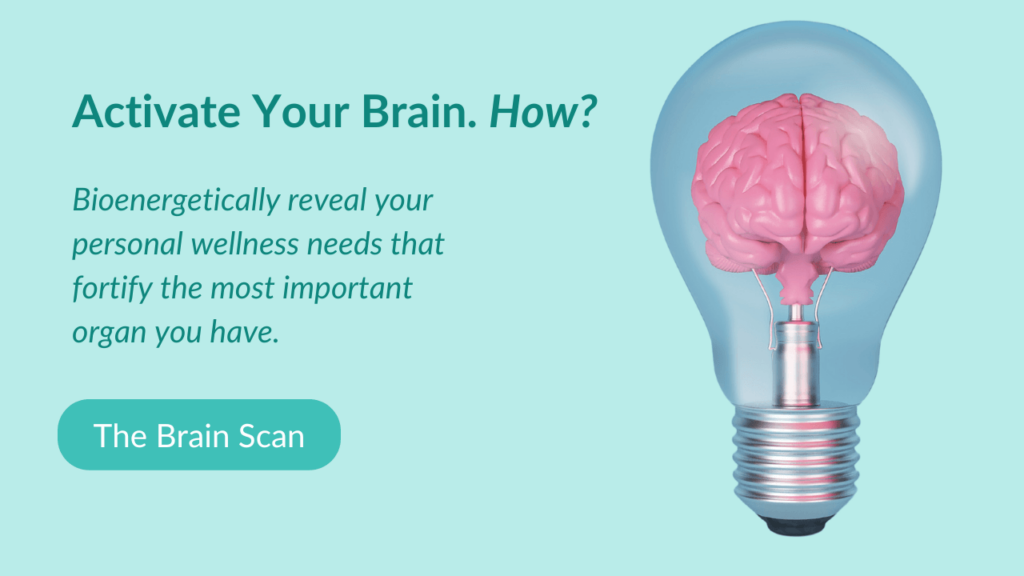
This Is Your No-Stress Guide to Meditation – for Beginners Who Think It’s Not for Them!
If you’re new to meditation and the thought of sitting still feels impossible, stick with us! Meditation for beginners doesn’t mean you must become a ‘guru’ or retreat to a silent mountaintop. Instead, it’s about easing into the benefits of mindfulness and meditation in ways that fit your life.
The beauty of meditation is that it’s about progress, not perfection. You don’t have to clear your mind completely or sit perfectly still for hours on end. It’s all about starting with small, manageable steps! Everyone can learn how to begin meditation, and in this guide, we’ll walk you through 8 simple, practical tips to get you started—no stress, no pressure.
What is Meditation?
Meditation has roots stretching back thousands of years, initially as a way to connect with deeper spiritual practices. Today, however, it’s most commonly used as a tool for relaxation and stress relief.
Meditation is considered a mind-body practice that can complement your wellness routine, offering a unique pathway to relaxation and mental clarity. For those exploring meditation for beginners, it’s an ideal way to start small and grow at your own pace.
By focusing your mind on one thing, meditation quiets the usual rush of thoughts, easing mental stress. This focused calm can positively impact both physical and emotional well-being. Meditation also connects with mindfulness, a practice that emphasizes being fully present. To dive deeper, check out our blog post, 3 Ways Mindfulness Benefits Our Health.

What’s the Difference Between Mindfulness and Meditation?
Meditation is a structured practice where you set aside time to focus your attention, usually with a specific technique, such as focusing on your breath or repeating a mantra. It’s often done in a quiet space and can last anywhere from a few minutes to longer sessions.
Mindfulness, however, is about maintaining awareness in the present moment without judgment, and it can happen during any activity—like eating, walking, or chatting.
In a way, meditation gives you the foundation to practice mindfulness throughout your day. It’s a chance to pause the external chaos and shift inward to a single focus.
What Meditation Isn’t
There are some common misconceptions about meditation, especially for beginners. One of the biggest myths? That meditation is about “thinking about nothing” or “clearing your mind completely.”
This isn’t the primary goal, and for most, it’s unrealistic.
Meditation is not about forcing your mind to be blank; it’s about focusing on one thing at a time. Whether that’s your breath, a particular sound, or the sensation of your feet on the floor, meditation is about bringing your awareness to a single point of focus.
Why Meditate? – Benefits of Mindfulness and Meditation
The benefits of mindfulness and meditation are well-documented. There are thousands of publications on these practices on both our mental and physical well-being. Here are just a few ways that regular meditation can support your well-being:
- Reduces stress: Meditation can help lower cortisol (the stress hormone).
- Supports emotional health: It promotes emotional resilience and helps reduce anxiety.
- Boosts physical health: Studies show meditation can improve immune function and reduce inflammation.
- Enhances self-awareness: It fosters a deeper understanding of your thoughts and reactions.
- Improves focus and attention: Meditation trains your ability to concentrate.
- Promotes better sleep: It calms the mind, helping with insomnia.
- Aids in pain control: Meditation has been shown to reduce pain perception.
- Supports heart health: By lowering blood pressure, it benefits cardiovascular health.
- Vagus Nerve stimulation: Slow-breathing practices in meditation activate the vagus nerve, promoting relaxation and aiding digestion.
- Boosts Neuroplasticity: Regular meditation encourages the brain to form new neural connections, improving cognitive flexibility and learning. Meditation can literally reshape your brain!
- Slows Down Aging of the Brain: Meditation is linked to less gray matter loss over time, which helps maintain cognitive function as we age.
With all these benefits of mindfulness and meditation, it’s no wonder it’s becoming a go-to practice for many people looking to improve their well-being.
Do We Really Need to Meditate?
In a tech-driven world, the inner calm that meditation offers is something no gadget can replace. No app can switch off stress or soothe anxiety the way meditation can.
This practice lets you tap into your inner peace—a tool always accessible, no matter what’s happening outside.
Why Meditation for Beginners is Easier Than You Think
If starting meditation seems intimidating, don’t worry—meditation for beginners is easier than you think. Here are a few reasons why:
- Meditation adapts to you: Consider meditation a tool that can fit your lifestyle, not a rigid practice you must mold yourself into. You can meditate sitting, lying down, or even while walking—it’s about finding a rhythm that feels right.
- No “perfect” way to meditate: Meditation is about presence, not precision. You don’t need to sit like a statue or “clear your mind” completely. If your thoughts wander, gently bring them back—this is part of the practice, not a failure.
- A journey of small wins: Every moment of focus you bring to meditation is progress. Over time, these small steps help build a sense of calm and awareness. There’s no rush; each session is part of a natural journey.
8 Simple Tips on How to Begin Meditation for Beginners
Starting a meditation practice can feel daunting, especially for beginners. But meditation for beginners doesn’t have to be complicated. With a few simple steps, you can build a habit that fits your lifestyle and helps you reap the many benefits of mindfulness and meditation.
1. Start with Short Sessions
Short sessions make meditation less daunting and allow you to build the habit gradually. Starting with just a few minutes helps prevent frustration and helps you stick with it as you get accustomed to the practice.
2. Create a Calm Space
A dedicated, quiet space helps signal your brain that it’s time to relax and focus. It removes distractions and makes meditation a part of your routine, allowing you to get into the right mindset for each session.
3. Focus on Your Breath
Your breath is always with you, making it an ideal anchor for meditation. Focusing on it helps quiet the constant chatter of the mind and calms your nervous system, which can lead to a sense of peace and relaxation.
4. Use a Guided Meditation
Guided meditations offer structure and guidance, especially for beginners who may not know where to start. Having someone lead you through the process can make the experience less overwhelming and provide a sense of direction.
5. Try a Mantra
A mantra is a mental anchor, helping you focus and redirect your mind when distractions arise. Mantras can also be like affirmations. They give your brain a specific point of concentration, making it easier to remain in the present moment. One element of our Brain Scan is the bioenergetic assessment of emotional blockages. For example, if you struggle to feel happy and your mood is often down, your report may give you a mantra like “I deserve happiness, and I embrace it in every aspect of my life.” Meditating on a mantra like this can help when you feel distracted and create a positive neural pathway in your brain.
6. Incorporate Mindfulness Throughout Your Day
Practicing mindfulness outside of formal meditation sessions helps integrate the practice into everyday life. This approach encourages you to be present in each moment, improving your overall awareness and reducing stress throughout the day.
7. Experiment with Different Styles
Not all meditation practices are the same, and exploring different styles allows you to discover what resonates best with you. Whether guided visualization or body scanning, finding the right fit helps keep you engaged in your practice.
8. Consistency is Key
Meditation is a skill that develops over time, and consistency is essential to experience its full benefits. Meditating regularly trains your mind to be more present and calm, leading to better emotional and mental well-being in the long run.

Ready to Begin?
Meditation for beginners doesn’t require a perfect technique, a silent retreat, or hours each day. All you need is the willingness to try. By following these tips on how to begin meditation and gradually incorporating it into your life, you’ll set yourself on a path to a calmer, more centered self.
Because meditation and mindfulness benefit the brain and Nervous System, our bioenergetic Brain Scan—a hair and saliva test—can be a valuable tool to support your mental and cognitive health journey. This test provides an in-depth analysis of specific stress levels in eleven parts of the brain, neurotransmitter imbalances, and key food sensitivities related to cognitive function. It also identifies stress factors impacting bioenergetic brain health, detects hormone imbalances affecting brain function, and suggests personalized cognitive-balancing tools, including meditation.


